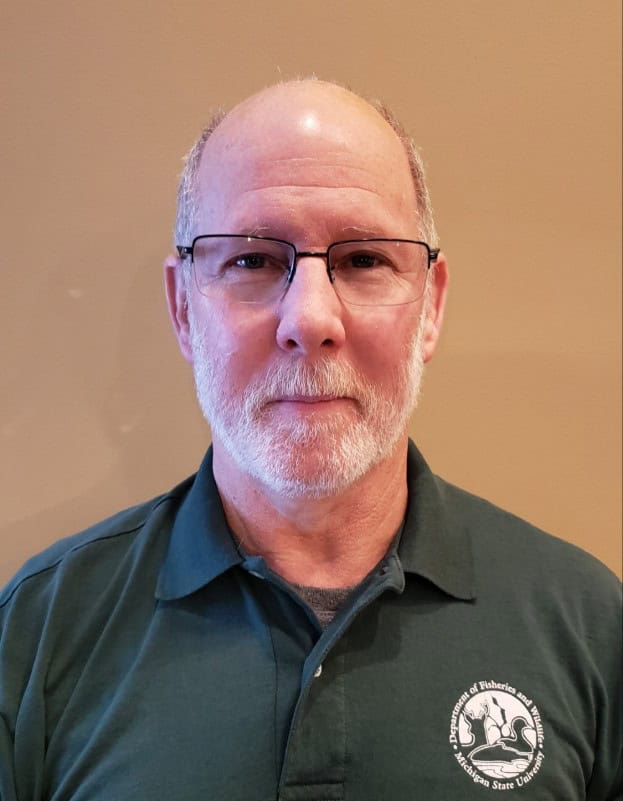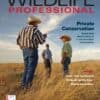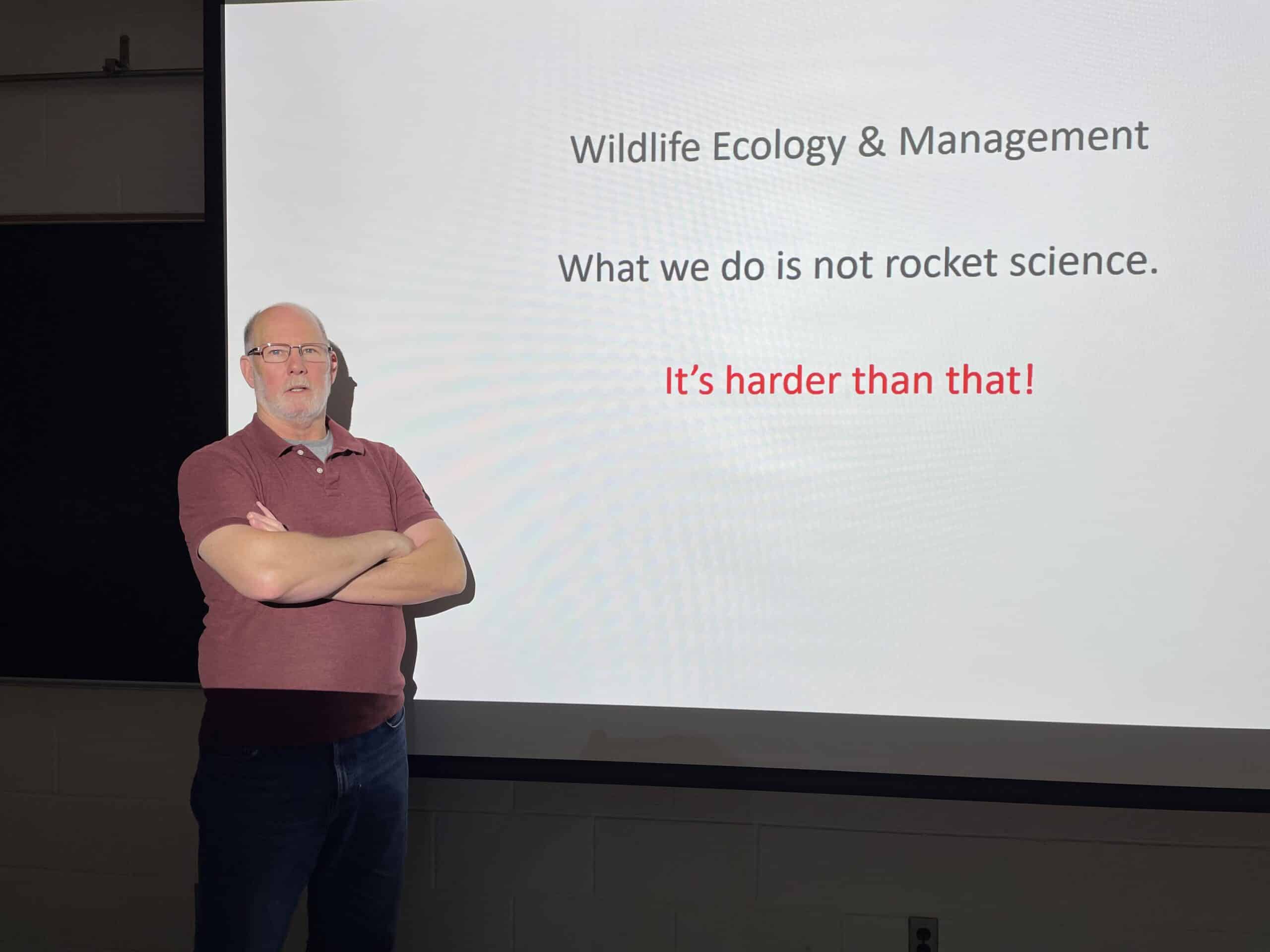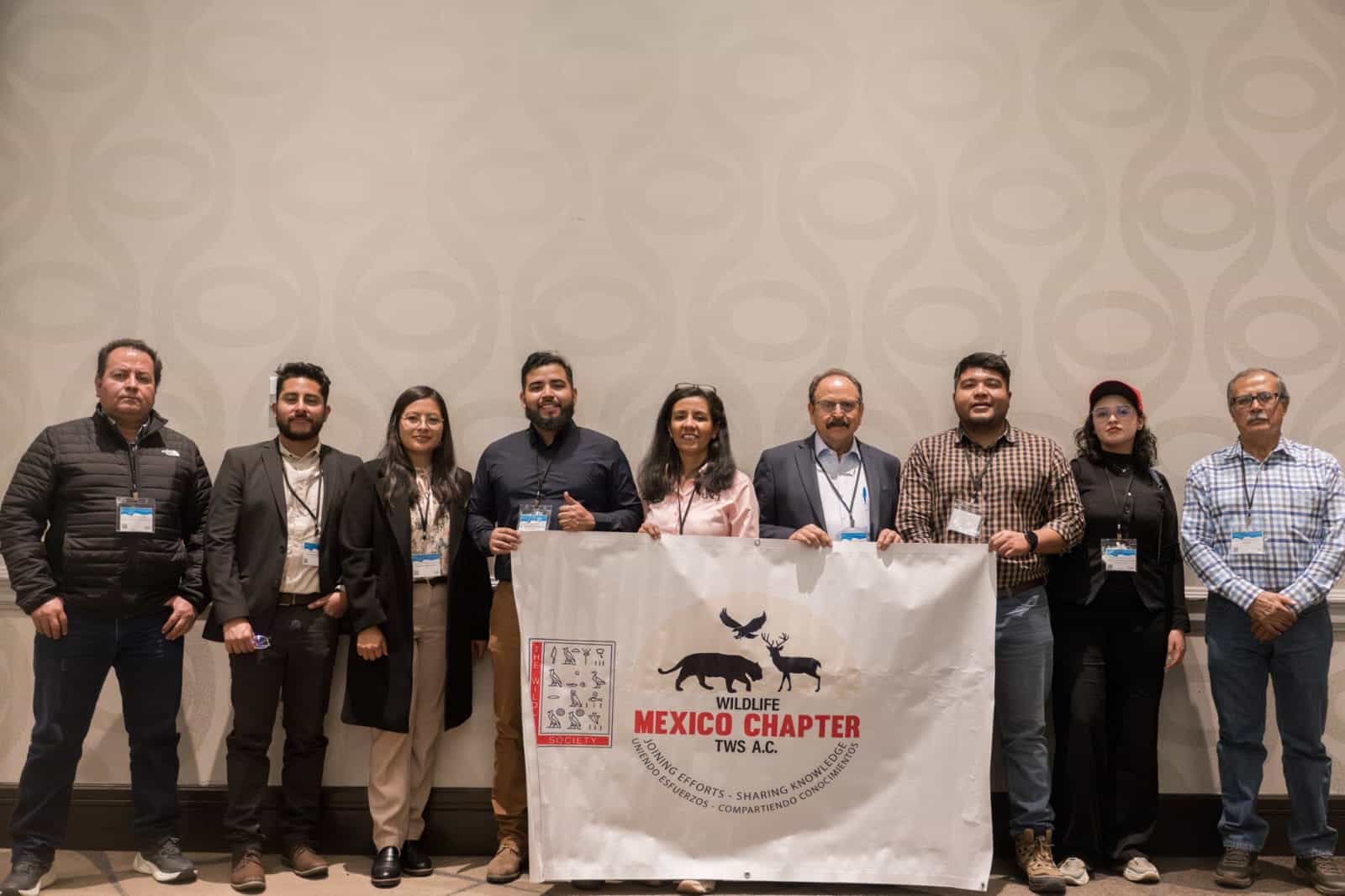Share this article
Scott Winterstein receives TWS Excellence in Wildlife Education Award
Winterstein’s student-focused teaching philosophy helped to inspire and guide multiple career paths
Scott Winterstein, a professor in Michigan State University’s Department of Fisheries and Wildlife, earned The Wildlife Society’s Excellence in Wildlife Education Award, celebrating his exemplary teaching and contributions to the improvement of wildlife education.
For over 30 years, Winterstein has been both an undergraduate and graduate educator and mentor in wildlife ecology and management. Winterstein’s educational philosophy, believing that teaching is not about the instructor, but instead about the students, has allowed him to build a teaching framework based on trust in all of his courses.
“If students understand that you care, not just about whether they learn the material for the next test, but about them, about what it is they want to do and become, then they will accept that there is value, to their lives and to their professional goals, in what you are teaching,” Winterstein wrote in a personal statement following his nomination. “They will match your effort with their effort. They will allow themselves to be pushed beyond their comfort level. They will value an education more than a grade.”
Winterstein has been a professor at MSU since 1986, teaching seven different courses over multiple years, including a study abroad course in Kenya. Through his leadership, Winterstein quickly gained a reputation as a trusted student advisor, helping many hone their career trajectory.
“As an undergraduate freshman, I was initially unsure of my preferred specialization within the wildlife management profession,” wrote Benjamin Luukkonen, a doctoral student at MSU, in a letter nominating Winterstein. “Scott’s passion for applying statistics to wildlife population ecology and management was contagious, and after that lecture, I immediately knew I wanted to be a quantitative wildlife ecologist.”

One of Winterstein’s former undergraduate learning assistants, Angela Yuan, recalls changing her major to Environmental Studies as a result of Winterstein’s encouragement and dedication to diversity, equity and inclusion.
“As a child of Chinese immigrants, I grew up isolated from the natural resources field,” Yuan wrote in a letter of support for Winterstein. “Winterstein encouraged me to keep an open mind about my belief that I could never work in this space. As I learned more about his career and the environmental movement, my passion grew. In a particularly inspiring lecture, Winterstein dedicated a day to teach us about BIPOC and female scientists/environmentalists. As a woman of color, this lecture was instrumental for me to picture a successful career in this field.”
Outside the classroom, Winterstein has actively participated in the TWS College and University Education Working Group by both planning and participating in symposia, publishing numerous teaching-related articles, and giving several presentations at the TWS annual conference. He has also been part of the TWS Biometrics Working Group. He has been a TWS member since 1986.
In nominating Winterstein for the Excellence in Wildlife Education Award, Senior Associate Dean of MSU’s Graduate School, Henry Campa, expressed that Winterstein can always be counted on to rise to the occasion as an educator.
“Serving as an educational leader and role model for what teaching and learning can be in the ‘classroom’ are ways in which Dr. Winterstein is paying it forward to benefit the next generation of wildlife educators, wildlife managers or researchers, or to non-natural resource professionals who hopefully will be better informed citizens who care about conserving our natural resources for generations to come.”
Winterstein will receive the Excellence in Wildlife Education Award in October at TWS’ 2024 Annual Conference in Baltimore, Maryland.
Header Image: Winterstein, an active member of TWS, has been part of the TWS College and University Working Group and has presented multiple times at TWS annual conferences. Photo courtesy of Scott Winterstein








